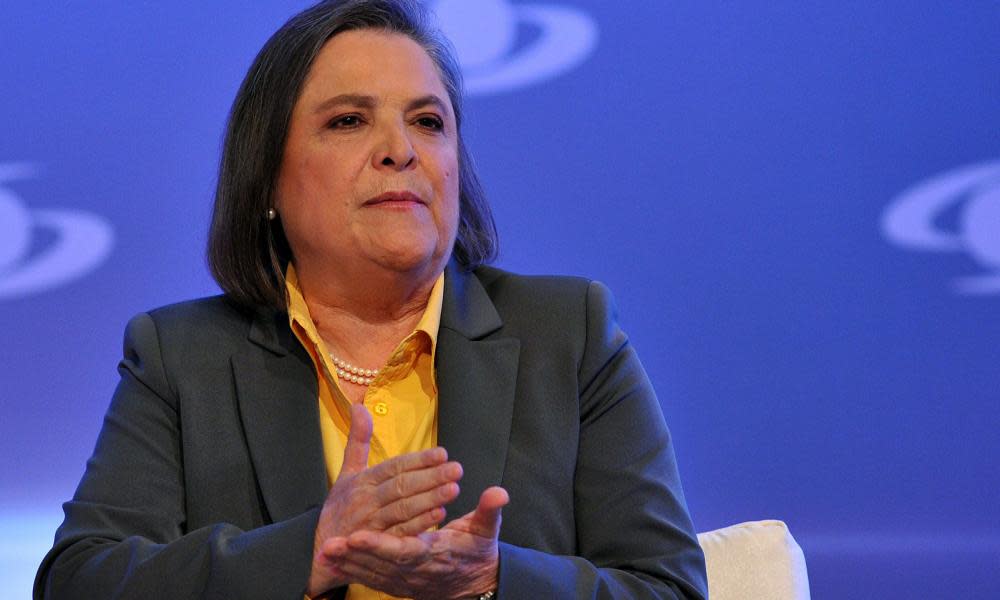Colombia activist killings ‘will not be tolerated’ says minister

The woman who is emerging as a linchpin in Colombia’s efforts to implement historic peace accords said last week that the culture of impunity over the killing of indigenous land and human rights activists “will not be tolerated. The end of impunity for killing of this kind is crucial to imposing the peace agreement, which is also about an end to the use of all arms for political ends in Colombia”.
Labour minister Clara López was leader of the leftwing Alternative Democratic Pole party which swung the 2014 presidential election in favour of the architect of the peace process, the 2016 Nobel peace prize winner President Juan Manuel Santos. She was recently appointed to the national commission for reintegration, charged with helping guerrillas from the Farc (Revolutionary Armed Forces of Colombia) back into society, after 62 years of internal war.
Speaking to the Observer during a visit to London, López said the hunting down of killers of activists and those who dispatched them “is part of the opening up of our democracy, as required by the peace process. It requires an end to the impunity that characterised these human rights violations by rightwing death squads”.
López sets the violence firmly within the peace process, because of its first provision – land reform – in addition to previous legislation on restoring land seized violently. “These killings,” she said, “are taking place because of a political situation on the land. For decades, people have been driven off land which was legally farmed, though not necessarily with a title deed. They were displaced by landowners taking care of things in abhorrent ways, using the rightwing paramilitaries. Until now, the people who pulled the trigger were protected by those who ordered them. Now the implementation of the peace process and restitution of land requires that we go after those who fired the gun, and the people who sent them. We need to find the brains behind these killings, and deliver them to the hand of justice”.
López said that those found responsible for killings of activists will be subject to a special “peace court” agreed at the Farc negotiations, though it does not concern crimes by the Farc, but what she calls the “descendants” of rightwing paramilitary groups disbanded in theory in 2004.
“Displacement” is often connected to drug trafficking and acquisition of land to cultivate coca, eradication of which is another provision of the peace process. The government is committed to programmes that help peasants farm other crops, or return to land from which they were displaced to do so.
On the environmental claims of some murdered indigenous leaders, López said: “There now needs to be proper consultation with indigenous groups and peoples. It’s an opening. We may not reach a situation of realising all the demands of indigenous and environmental groups, but things will not go on as they are”.
López, who is a key part of the coalition preparing to contest the presidential election next year, set her pledge in the context of the wider aims of the peace process, “which make such practices untenable after the end of the armed conflict in Colombia. The idea that you can use weapons in politics is no longer tolerable. This is about coming to terms with quality, functioning, inclusive democracy, and construction of the rural areas – not just democracy by name”. The big difference now, she explained, is that “the state is committed to ending any place for the gun in politics”.
However, she cautioned: “This transition is not going to be achieved like the seven days of the creation. It’s not easy to eliminate this kind of violence, but we can make inroads against it. It takes time.”

 Yahoo News
Yahoo News 
